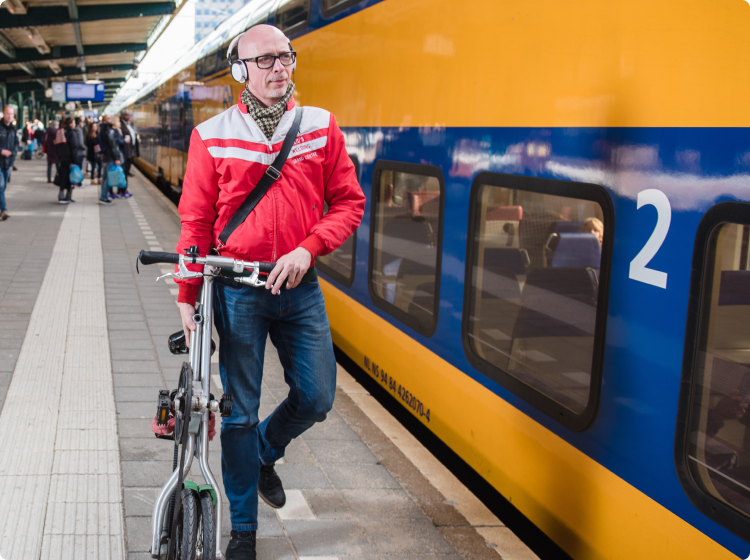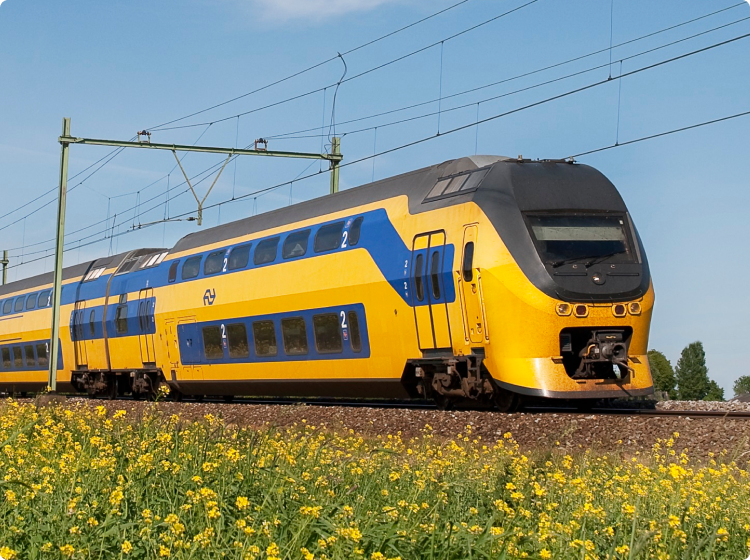Dilemmas
NS is regularly faced with dilemmas, both in its daily operations and in developing its plans for the future. We believe it is important that we share those dilemmas with the outside world. This enables us to give people in the Netherlands an idea of the considerations leading up to our decisions in 2022. In the section below we highlight three important dilemmas that NS was faced with in 2022.
Satisfied passengers or satisfied employees?
Many sectors of the Dutch economy have experienced staff shortages, NS included. We still have a large number of vacancies for a range of positions, including main guards, train drivers, Safety & Service staff and IT staff. These shortages began to affect our operation in the spring of 2022. In the period leading up to that, NS underestimated the severity of the shortages and failed to adjust the timetable accordingly in time. By asking for an extra effort from our colleagues, we were able to avoid the impact for passengers for some time and continue running the timetable as scheduled. However, the combination of staff shortages and high levels of sickness absence meant that the pressure on our people continued to increase. It became more and more difficult for them even to take a single day off. At the same time, passenger numbers began to rise again. After two years of COVID-19 and practically empty trains, of course we welcomed this development. But it also increasingly confronted us with a dilemma: should we run fewer and shorter trains to relieve some of the pressure on our people, or maintain the timetable to welcome as many passengers as possible back on our trains? We decided to alleviate the pressure on our colleagues and to launch a reduced yet predictable timetable for our passengers in the autumn. We designed that new timetable with due regard for the 20% fall in passenger numbers compared with the period before COVID-19 and the new travel patterns that have emerged since then. In this way we manage to unite the objectives of satisfied employees and satisfied passengers.
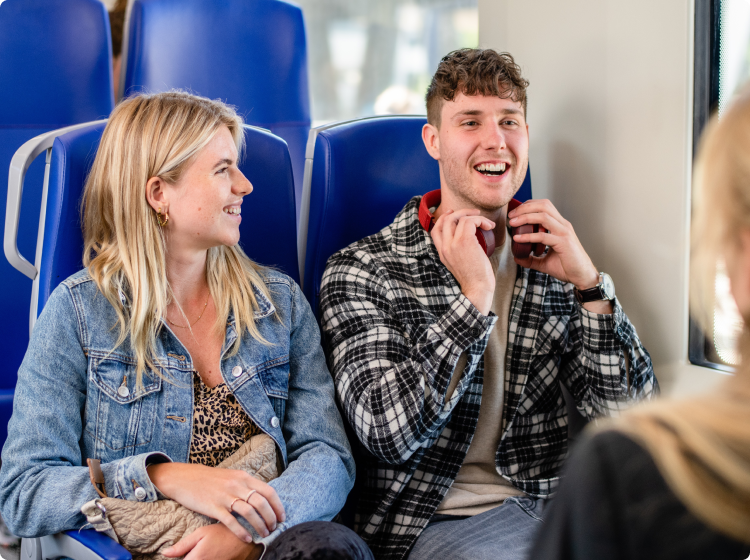
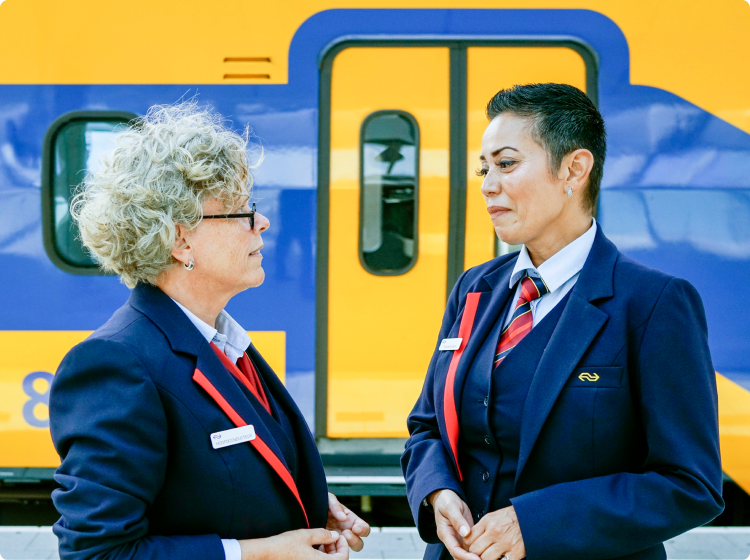
Economise, or invest in the future?
Due to the COVID-19 pandemic, we carried far fewer passengers in 2020 and 2021 than we did in the preceding years. This signified a very severe financial blow for NS, with billions of euros in lost revenues. Passenger numbers began to pick up again in 2022, but are still a good 20% lower than in 2019. Fewer passengers means lower income. At the same time, costs increased in 2022, due in part to a high inflation rate. This means that NS is now facing a considerable financial challenge. The Netherlands Institute for Transport Policy Analysis and others expect a sharp rise in passenger numbers over the next few years. Our current rolling stock cannot offer the required seating capacity and is partly obsolete. And newly ordered trains take some time before they are actually available. This meant we were facing a choice: are we going to set aside funds to improve our financial position or are we going to invest in the future now by purchasing new trains? We chose to do both, economise and invest, and purchased 60 new double-decker trains in late 2022. This is how we live up to our reputation as a socially relevant company and ensure the Netherlands remains accessible in the years to come. At the same time, throughout 2022 we remained alert to opportunities to further reduce our costs and increase our income.
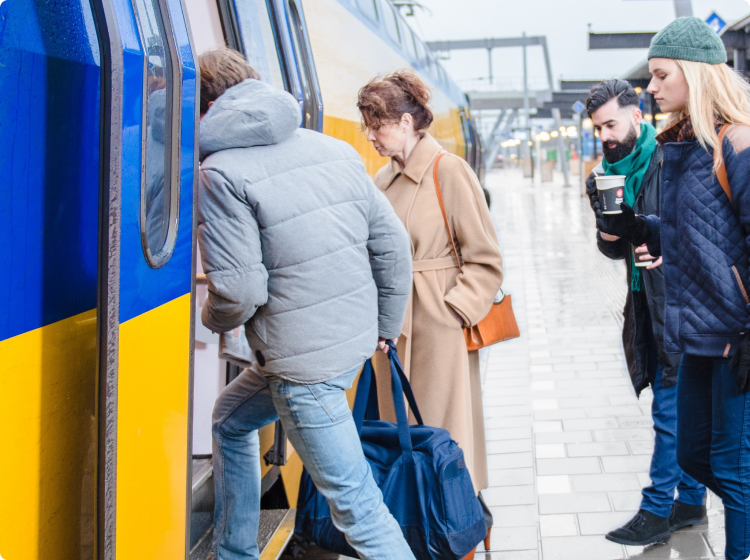
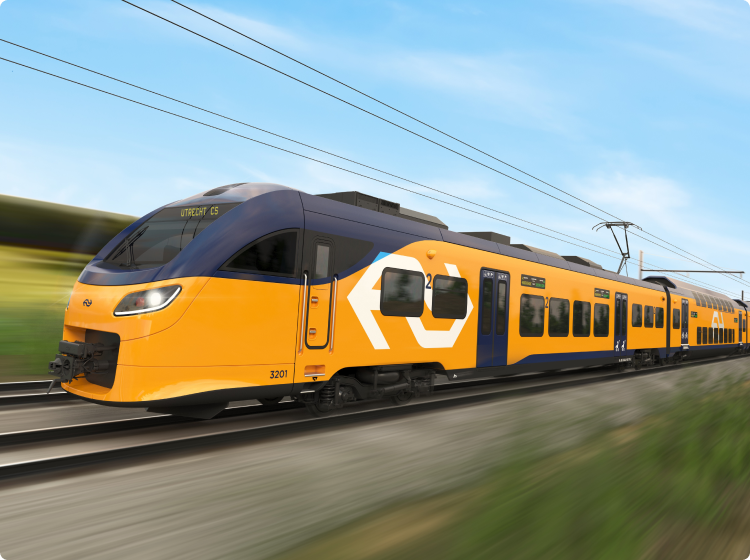
More stops or faster travel?
NS always wants to take passengers to their destinations in as little time as possible. Intermediate stops increase the total travel time. This is why Intercity trains do not call at all intermediate stations, allowing passengers to travel a lot faster. At the same time, however, in addition to serving passengers in the big cities we also want to keep less densely populated areas easily accessible. That means we also have to serve smaller stations, providing a convenient service for passengers in smaller communities.
One example of this dilemma - more stops or faster travel - involved an Intercity service in the province of North-Holland. The extra peak-hour Intercity trains from Enkhuizen to Amsterdam did not call at Purmerend. Effective February 2023, however, they will. The closure of three non-actively protected level crossings (NABOs) means that trains can now travel faster. As a result, the additional stop at Purmerend will only slightly increase travel times for passengers from Enkhuizen and Hoorn, while enhancing the connections from Purmerend and surrounding towns and cities to Amsterdam and the rest of the country. NS is also confronting this dilemma in its approach to keeping the province of Zeeland accessible. In that case, however, local residents wanted a faster connection with the Randstad conurbation. Now there is one fast Intercity service an hour between Vlissingen and Amsterdam without intermediate stops at small stations, and another Intercity train that does call at those stations.
